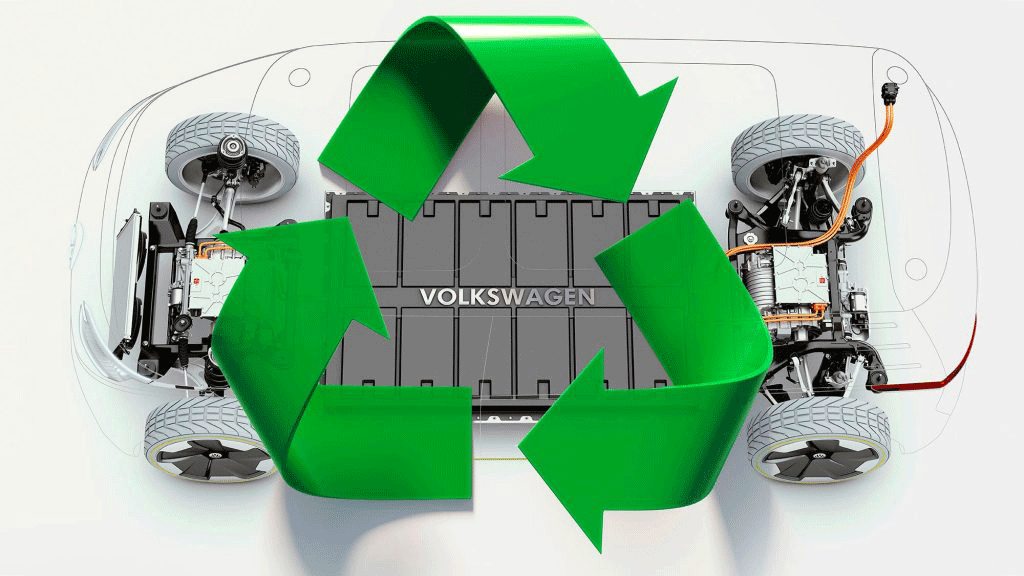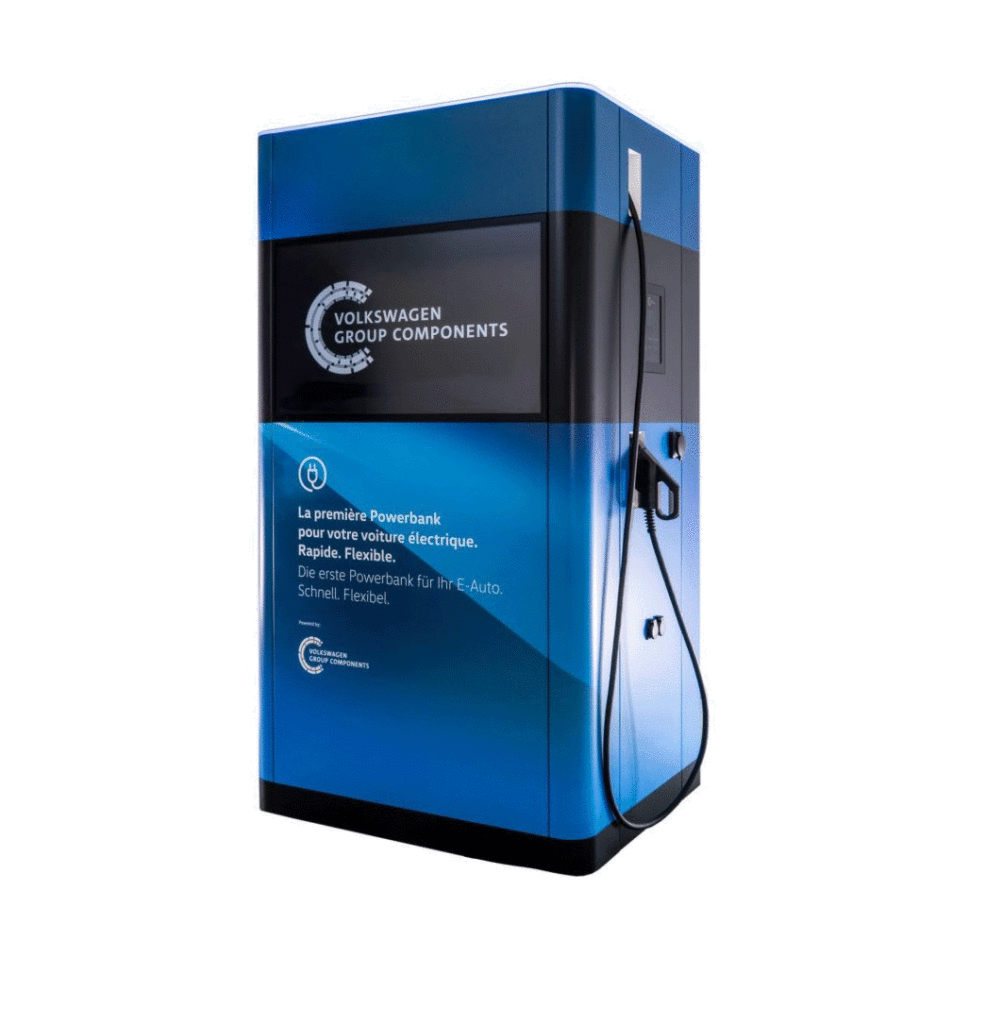The new generation of electrified vehicles will bring a massive increase in the number of batteries on the road, and already there are concerns about how those advanced lithium-ion batteries will be recycled after 10 or 15 years of use. Volkswagen is already working on how to develop a robust second life for the batteries that will power them.
In the USA 99% of all lead-acid automotive batteries are recycled, making them among one of the most-recycled goods you can buy. When your battery wears out, that old battery can then be shredded or melted down, and its raw materials reused.
Electric vehicle batteries are one of the most expensive parts on such cars, due to their complexity and the rare metals they require, such as cobalt and manganese. As EVs become more commonplace, digging those metals out of discarded batteries can be cheaper than digging ores from the Earth and, more importantly, helps reduce the carbon impact of transportation, not just from the vehicles when they are driven, but over their entire lifespan. From raw material to junkyard, tight control over how batteries are recycled is needed. To tackle the challenge, Volkswagen is working toward portable rechargers and energy-efficient recycling.
An older lithium-ion battery that’s been on the road a decade or more may not be suitable for powering a vehicle, but it could still have a sizable energy capacity. And electric vehicles need charging in many places where there may not be chargers or even power outlets available. Those two problems have the same solution.
 Volkswagen Group plans to produce a portable quick-charging station. Designed to hold up to 360kWh of energy, the quick-charge station can charge up to four vehicles at a time, with a maximum quick-charge output of 100kW. Like a portable cell phone charger, the charger can be used until it’s depleted or connected to a power source to keep itself recharged.
Volkswagen Group plans to produce a portable quick-charging station. Designed to hold up to 360kWh of energy, the quick-charge station can charge up to four vehicles at a time, with a maximum quick-charge output of 100kW. Like a portable cell phone charger, the charger can be used until it’s depleted or connected to a power source to keep itself recharged.
The charger has been designed to use the same battery packs as the OEM’s MEB electric vehicle chassis, so that when those packs reach the end of their useful life, they can have a second career as a recharge station. The first of these portable quick chargers is anticipated to be installed in Germany in 2020, and Volkswagen Group expects to begin full production that year.
At some point, all batteries lose the ability to hold energy. That’s where a new project at Volkswagen’s component plant in Salzgitter comes into play. Salzgitter is expected to be the home of Volkswagen’s first center for electric vehicle battery recycling. Next year, the center plans to have an initial capacity to recycle roughly 1,200 tons of EV batteries per year, equal to the batteries from about 3,000 vehicles.
Using a special shredder, the individual battery parts can be ground up, the liquid electrolyte can be cleaned off, and the components separated into ‘black powder’. This powder contains the valuable raw materials cobalt, lithium, manganese and nickel, which, while requiring further physical separation, are then ready for reuse in new batteries.
In the long term, VW wants to recycle approximately 97% of all raw materials in the battery packs. Today, it stands at roughly 53 %, and the plant in Salzgitter expects to raise it further to about 72%. Volkswagen expects the plant in Salzgitter to be followed in the next few years by further decentralized recycling plants.



